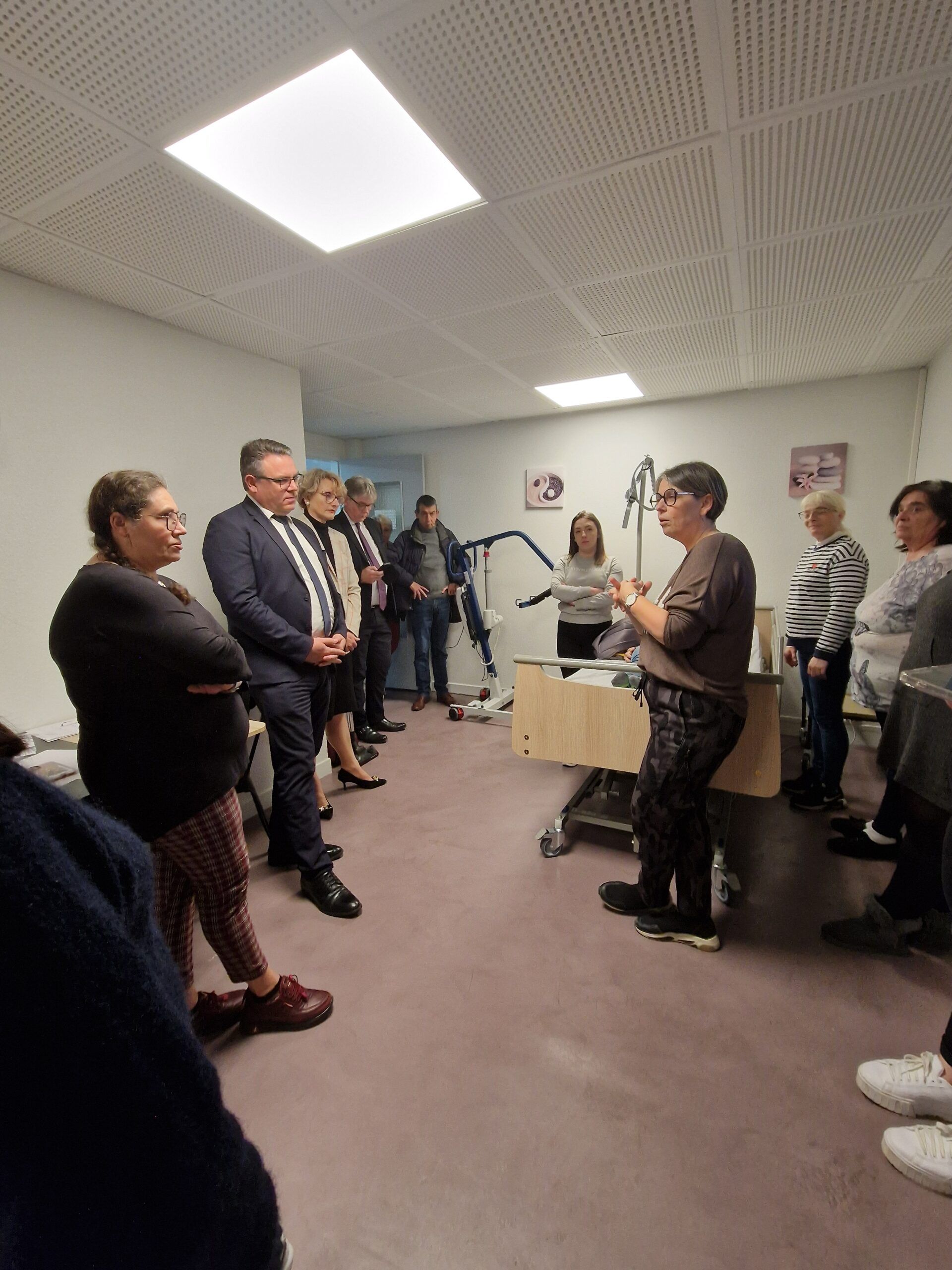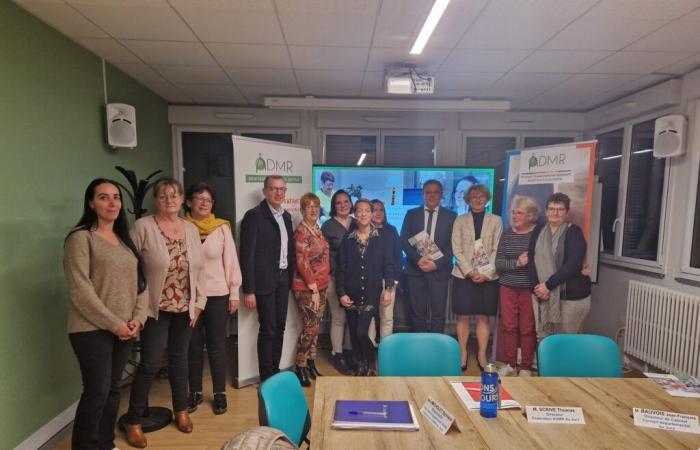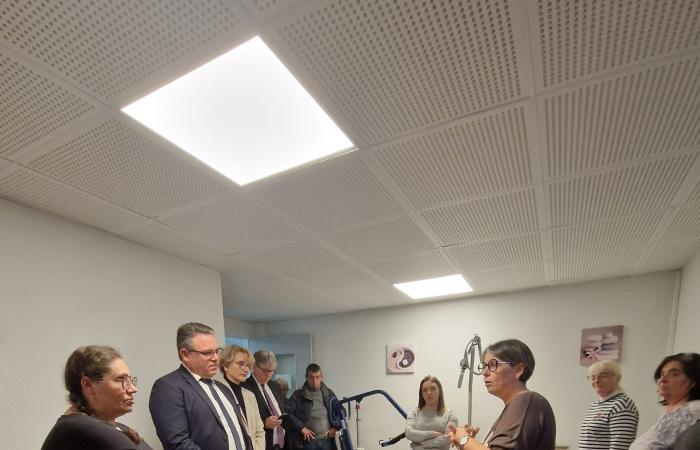For 75 years, the ADMR du Jura has worked to support elderly, disabled or vulnerable people. With 29 local associations (20 SAAD and 9 SSIAD), 580 employees and 225 active volunteers, it meets the needs of 5,400 people helped.
After a meeting in September, Thomas Scrive, director of the ADMR Federation of Jura, and Véronique Gibaud, president of the ADMR Federation of Jura, made an appointment with Gérôme Fassenet, president of the Departmental Council, Jean-François Bauvois, director of cabinet of the Departmental Council, and Florence Maupoil, vice-president of the Departmental Council, to take stock of the challenges and projects of the first home help network in Jura. Also present were representatives of the ADMR, home helpers, volunteers and technical assistants.
Innovation at the service of training
Among the flagship initiatives presented during this meeting, the educational apartment attracted attention. This place, compliant with professional standards, is designed to host training sessions for home helpers, allowing them to acquire essential skills while improving their working conditions. Laurine, a recently trained home helper, testified:
« These training courses are important to learn how to work in good conditions, both for us and for the people we help. »

Gérôme Fassenet welcomed this initiative and stressed that “ an investment of a few thousand euros with the help, for example, of Soliha in home adaptation can considerably improve daily life and delay entry into an establishment. »
Main challenges and issues
A round table made it possible to address the crucial issues of the sector, in particular the recruitment and retention of employees. Thomas Scrive underlined that, despite a national context marked by the extreme fragility of players in the sector, the ADMR retains its strength thanks to a shared organization. “ This pooling guarantees both operational capacity, geographical proximity and an essential human link with the beneficiaries. “, he said.
Véronique Gibaud also recalled the major challenges: “ Recruitment, financial issues and limited room for maneuver on sales prices are permanent challenges. » These difficulties do not prevent the ADMR from adapting, « thanks to the commitment of a hard core of professionals and mobilized volunteers », as Thomas Scrive pointed out.
ADMR workers on the front line
Florence Maupoil, former president of the ADMR Federation of Côte-d’Or, recalled: “ It's not an easy job. You have to be in a certain state of mind, because it is an entry into the private life of the person being helped. Staying at home also involves the well-being of the person. » Among the speakers, Sophie Dalle, SAAD technical assistant from Lons-le-Saunier, said: “ It's not always easy, but we have a good team that works well. My biggest frustration is not being able to respond to all requests. » Cécile Varchon, SAAD home help in Lons-le-Saunier, added: “ It's a job that requires versatility, in which we support people in what they can no longer do. »
The renewal of the automobile fleet, planned for the beginning of December, will thus facilitate the working conditions of employees, who travel a lot.
Towards optimal support
Despite the difficulties, the ADMR du Jura continues to innovate. In addition to the educational apartment, projects such as home autonomy services or shared housing aim to meet the growing needs of beneficiaries. These initiatives are accompanied by a strong commitment to prevention, with actions such as the Bons Jours workshops, which promote staying at home in optimal conditions.
This first official meeting illustrates the common desire of the ADMR and the Departmental Council to act together to guarantee each Jura resident a dignified, autonomous life adapted to their needs. For Gérôme Fassenet, “ It is important to hear the difficulties of ADMR, because living well at home for as long as possible is a priority. »
B.B










